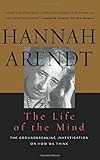“Philosophy: Back to big thinking” http://www.guardian.co.uk/world/2012/jun/04/editorial-philosophy-big-thinking
哲学フェスティヴァルHowTheLightGetsin 2012*1に因んでの社説。
スティーヴン・ホーキングが「哲学は死んだ(philosophy is dead)」と発言したこと*2に抗して、
しかし、英国哲学ではbig thinking或いは「形而上学」への回帰傾向が出現しているという。「哲学は死んだ」宣ったホーキング先生自身も形而上学的なbig thinkingをしている;
But Hawking may be right to the extent that science has largely supplanted philosophy as the vehicle for our big questions about life, the universe and everything – especially in the popular imagination. Throughout the 20th century, Anglo-Saxon analytic philosophers focused attention down on an increasingly narrow set of conceptual problems that often had all the imaginative range of a car manual. Those who defended this way of working insisted on modest and careful restraint against the flights of metaphysical fancy that can leave some philosophers looking a bit like theologians – which, in some quarters, remains the ultimate insult. The British philosophical tradition has often understood its task to be preparing the conceptual ground on which other disciplines can be built. Thus Locke described himself as an "under-labourer" to Newton*3.
ああそうなんだ。
The new mood in British philosophy, however, at least in its popular guise, is that the time has come for a more expansive role. Indeed, even the word "metaphysics" is making something of a comeback. And this is partly down to questions that physics and technological advance are throwing up. To what extent does virtual reality challenge what we mean by reality? Do advances in medical science and cybernetics suggest that humanity can overcome the limitations that have hitherto been associated with what it is to be human? Even Hawking himself has stimulated considerable reflection on the idea that science can tackle "the question of why it is that we and the universe exist", going on famously to insist that "if we find the answer to that, it would be the ultimate triumph of human reason – for then we would know the mind of God".
常識的に考えても、〈事実〉を知ることと〈意味〉や〈価値〉を了解することは違うでしょとはいえる。また個人的には「哲学」は「反哲学」としてしか(少なくとも20世紀以降においては)ありえないのではないかと思っている*4。また以前引用した*5河野哲也氏の穏当な意見を再度掲げることことも無意味ではないだろう;
ということで、「形而上学」の復活と言われても、ちょっとぴんとこないということはある。
古代ギリシャで生まれた哲学は、当時の(不完全であるが)民主主義社会における市民のための知だった。
専門家と一般市民という分け方をするならば、あるいは、一人の人間のなかに専門家としての側面と素人という側面があるとすると、哲学というのは、一般市民のための学問であり、素人のための知である。
科学は、研究領域も方法論も定まっていて役割分担があり、その専門家は良くも悪くも権威をもっている。しかし、哲学は何を研究してもよいし、特定の方法論もない。哲学とは、一般市民が非専門家の立場から、既存の知識や常識に対して「それは本当に”正しい”知識なのですか。それは、吟味された生活に役立つ知識なのですか」と問いかける作業に他ならない。
哲学には特定の専門領域がなく、どんな問題にでも介入するのは、専門家ならぬ一般市民のための知だからである。(『暴走する脳科学』、p.30)

- 作者: 河野哲也
- 出版社/メーカー: 光文社
- 発売日: 2008/11/14
- メディア: 新書
- 購入: 7人 クリック: 99回
- この商品を含むブログ (43件) を見る

The Life of the Mind (Combined 2 Volumes in 1)
- 作者: Hannah Arendt,Mary McCarthy
- 出版社/メーカー: Mariner Books
- 発売日: 1981/04/01
- メディア: ペーパーバック
- クリック: 2回
- この商品を含むブログ (10件) を見る
*1:http://howthelightgetsin.org/
*2:See Matt Warman “Stephen Hawking tells Google ‘philosophy is dead’” http://www.telegraph.co.uk/technology/google/8520033/Stephen-Hawking-tells-Google-philosophy-is-dead.html
*3:Stanford Encyclopedia of PhilosophyのWilliam Uzgalis “John Locke”(http://plato.stanford.edu/entries/locke/ )が参照されている。